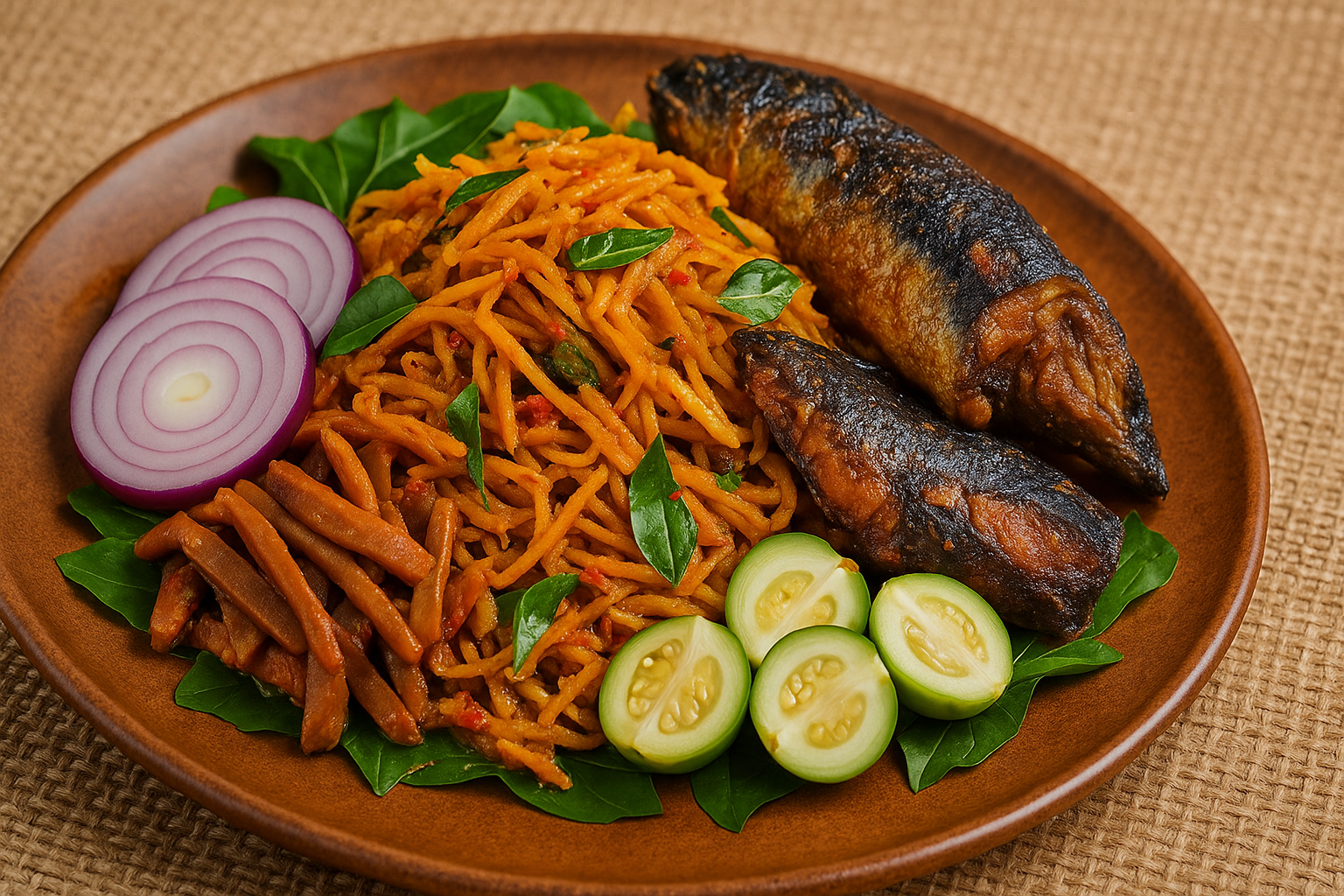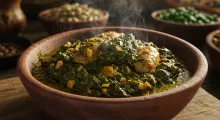Abacha, often referred to as “African Salad,” is a cherished delicacy rooted in the culinary traditions of the Igbo people of southeastern Nigeria. Made from shredded dried cassava, it is a dish that blends nutrition, culture, and community into one delicious meal. Whether served at festivals, family gatherings, or as a street food favorite, Abacha remains a staple that bridges both everyday living and celebration.
Origins and Cultural Context
The name "Abacha" originates from the Igbo language, where it simply refers to cassava that has been processed by boiling, slicing, drying, and storing. In many Igbo households, especially among older generations, preparing Abacha is an event of pride and heritage. It is commonly served during traditional ceremonies, village meetings, and as a welcome dish for guests. Over time, its popularity has spread across Nigeria and even into West African communities abroad.
Ingredients and Preparation
At the heart of Abacha is dried cassava, which is first boiled and then sliced into thin, noodle-like shreds before being sun-dried. When ready to cook, the cassava is soaked in warm water until soft and then drained.
The salad is then tossed with a bold mixture of ingredients, each bringing a unique flavor and texture:
Palm oil: Rich, red palm oil is often bleached slightly and used to coat the cassava.
Ugba (oil bean seed): Fermented slices of oil bean provide an earthy umami flavor.
Fish: Traditionally, smoked or dry fish is shredded into the salad. Some versions also include stockfish or mackerel.
Crayfish: Ground dried crayfish adds a savory depth.
Pepper and onions: For heat and sweetness.
Potash (akanwu): A small amount of this natural alkaline salt is used to emulsify the palm oil, giving it a more vibrant color.
Garden eggs, utazi leaves, and kpomo (cow skin): These optional additions elevate the texture and authenticity of the dish.
Serving and Presentation
Abacha is usually served cold or at room temperature. It is often accompanied by a side of fried fish or beef, and garnished with onions, sliced garden eggs (African eggplant), and aromatic leaves like scent leaf or utazi. It can be enjoyed as a complete meal or a snack, and is frequently sold in open-air markets and roadside joints across Nigeria.
Nutritional Benefits
Cassava is rich in carbohydrates, making Abacha an energy-dense dish. The addition of vegetables, fish, and protein-rich ugba makes it balanced, although its heavy reliance on palm oil means it should be consumed in moderation.
Modern Variations and Popularity
While traditionally Igbo, Abacha has found love across different ethnic groups. Modern interpretations may include avocado, lettuce, or even sausages. It’s also become a popular offering at Nigerian restaurants in the diaspora. The fusion of bold colors, crunch, and layered flavors makes Abacha more than just a dish—it’s a celebration on a plate.


